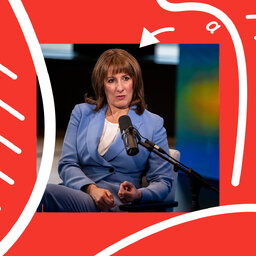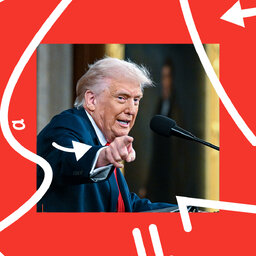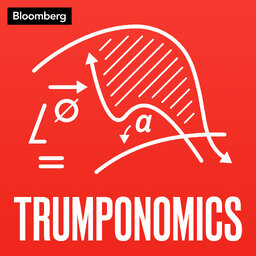On this episode of Voternomics, former UK diplomat Tom Fletcher discusses how the Labour Party leader’s first 30 days could define his premiership. Plus, reporter Ellen Milligan discusses her story on Labour’s position on Brexit. Hosted by Allegra Stratton and reporters Alex Wickham and Ailbhe Rae.
In 1 playlist(s)
Trumponomics
Tariffs, crypto, deregulation, tax cuts, protectionism, are just some of the things back on the tabl…Social links
Follow podcast
Recent clips

Exclusive: Rachel Reeves on Iran Shock, US Trade and Inflation Risks
25:18

Introducing: Bloomberg This Weekend
01:08

Trump’s Rosy Economic Message Faces a Reality Check
30:53
 Trumponomics
Trumponomics